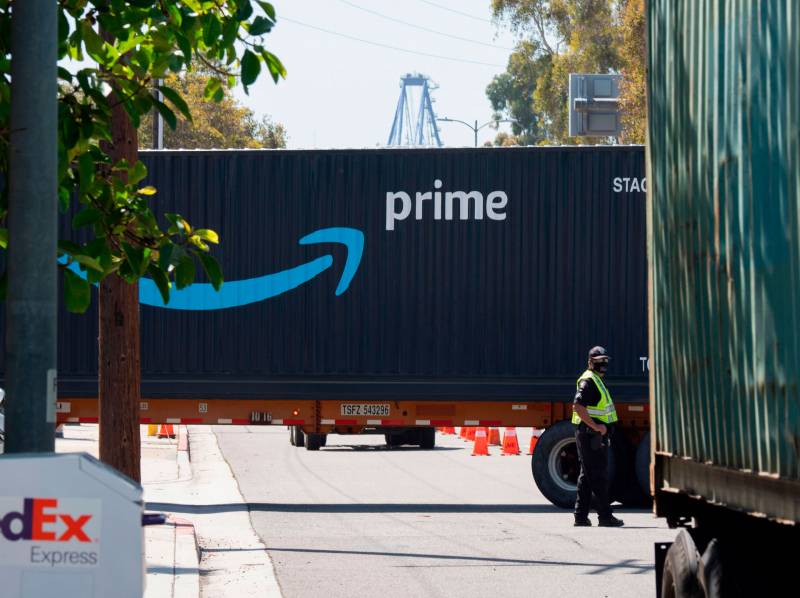Some items are also cheaper at other times of the year. Furniture and kitchen appliances tend to be cheaper around Labor Day, while gaming consoles and toys tend to cost less during the holidays, McGrath said.
2. It’s a good time to stock up on essentials
Although many people use sales such as Prime Day for big purchases like a television, it can be a good time to stock up on smaller essentials.
“It gets a lot of hype for its tech deals and those big-ticket items, but Amazon also offers some more boring, practical deals on things you need to stock up on, like groceries and pantry staples,” McGrath said.
She also pointed out that Amazon offers Prime Day deals on services like Amazon Fresh, its grocery delivery service. Even if it’s not quite time for your next grocery run, taking advantage of some Prime Day offers could save you money, she said.
3. Watch out for lightning deals and Amazon coupons
Make sure to watch out for lightning deals — special offers that last only for a limited amount of time (and may be more likely to sell out). McGrath recommends adding your Prime Day items to the “Save for later” section of your cart. This allows you to keep an eye on prices without accidentally buying items too early.
If you’re looking at an item but the price still seems too high, McGrath recommends at least going to the product page to see whether any coupons are available. She was once looking at a vacuum cleaner that was $100 off, but after visiting the product page, she noticed another $ 100 off coupon for Prime members.
“You really have to be looking for a lot of these little extra-effort things,” she said.
4. Other retailers are in on the action
Amazon isn’t the only retailer offering sales this week, so comparing prices from other stores can be a way to ensure you’re getting a good deal.
“Every retailer under the sun is going to be throwing sales right on top of Prime Day,” McGrath said.
Big-box stores like Target and Walmart and smaller retailers have been offering sales and promotions this month. Like Prime Day, Walmart’s and Target’s sales also require membership in their rewards programs — Walmart+ and Target Circle, respectively. Like Amazon Prime, Walmart+ offers a 30-day free trial and then costs $98 a year. Target Circle is free to join.
5. Avoid impulse buying. Other sales are around the corner
Prime Day lasts for two days. This can create a sense of urgency, leading some shoppers to make impulse purchases. But if you weren’t planning to make a big purchase, don’t feel pressured to just because something is on sale.
Other big seasonal sales are around the corner, and many stores will offer discounts on big-ticket items. McGrath also said Amazon tends to repeat deals, especially for its own products, around Black Friday.
Editor’s note: Amazon is among NPR’s financial supporters.
